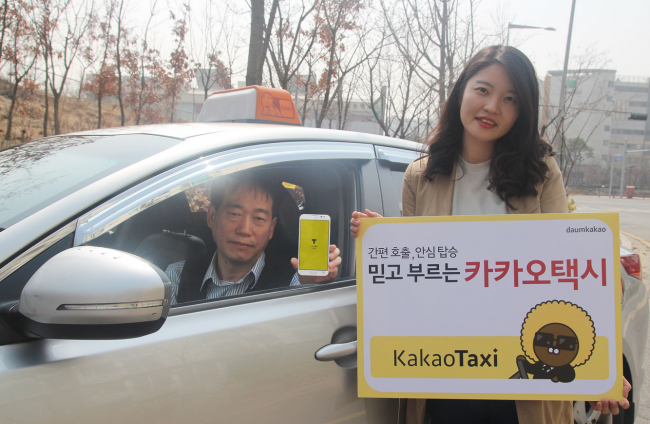by JAMES S. KIM | @james_s_kim
editor@charactermedia.com
Daum Kakao Corp. is considering bringing South Korea’s most popular cab-hailing app service to the Big Apple, according to Bloomberg.
KakaoTaxi launched just over two months ago, but since then, the Korean app has rapidly overtaken Uber, with reportedly more than 2 million cumulative bookings and about a third of the nation’s taxi drivers registered on the app.
KakaoTaxi’s popularity with Korean commuters isn’t just attributed to the brand recognition of KakaoTalk, South Korea’s most popular mobile messenger. Its software monitors real-time traffic—an invaluable resource in an urban setting like Seoul—to calculate the estimated time of arrival for a taxi to reach a passenger. Passengers can conveniently pay their fares with their T-money card, which is also used for buses, subways and select taxis.
KakaoTaxi also addresses many of the security issues that have plagued Uber’s services around the world. The app provides a full profile on the drivers, who must carry an official taxi license to be a KakaoTaxi driver. When passengers enter the cab, they can send push notifications to friends and family that includes their real-time location, pick-up time, estimated ride time and any messages.
John Jung, Daum Kakao’s director of business development, told Bloomberg that KakaoTaxi’s success also came from their willingness to work with the government and cooperate with the taxi industry—both of which were upset over Uber’s business. The government booked Uber Korea employees on suspicion of operating illegal taxi services in the country back in March, leading to the company suspending its services in Seoul.
Since Uber and other ride-sharing apps began operations in New York City in 2012, the city and its Taxi and Limousine Commission (TLC) has heard complaints from both the established taxi industry and ride-sharing providers. Yellow-cab drivers have claimed Uber’s business is illegal because drivers do not have to pay fees or buy expensive medallions. Total yellow-cab trips fell 8 percent between 2012 and 2014 since Uber began operations in the city.
On the other hand, ride-sharing app providers have complained about city policies, opposing new regulations that they claim would “threaten the options” both riders and drivers rely on.
Uber and other ride-sharing companies are not permitted to operate outside of New York City. Lyft was shut down after a brief run in cities like Buffalo and Rochester due to concerns from state regulators. A bill was introduced in the New York State Legislature to open access to outside of New York City earlier this year, but the bill is reportedly stuck in limbo.
See Also
KakaoTaxi Hits the Road in South Korea, Challenging Uber
Uber Korea Employees Charged with Operating Illegal Taxi Ring
How KakaoTalk Founder Became South Korea’s Rarest Billionaire
___
Featured image via whowired.com







